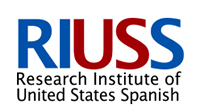WHY TRANSLATION
RIUSS recognizes the basic premise that the written Spanish used in the United States for information and communication purposes is mostly a product of translation.
Due to the large and growing number of Spanish speakers, in recent decades the use of Spanish has increased exponentially. The Federal Government, state and local governments, as well as the private sector have all recognized this fact by making Spanish an important factor in their communications with the public.
The United States is a Spanish-speaking country. However, most communication and information addressed to Hispanics is not originally written in Spanish—it is translated from English.
Furthermore, the field of translation studies lacks theoretical and empirical research focusing on the singular reality of a language that evolves within a bilingual society such as ours. There is a market for “U.S. Spanish”. However, what is “U.S. Spanish”?
These are some of the translation-related issues that need to be studied:
- Lack of reader comprehension, as reported to the translator by the translation requester
- Translation reviews received by the translator from his/her direct clients’ internal reviewers who, in the best of cases, have direct contact with the readers and provide a level of readership feedback
- Translation reviews received by the translator from his/her direct clients’ internal reviewers who are bilingual but not translators and who do not understand the registers of the translated text
- Government requirements for the use of “plain language” understandable to readers at the 8th grade level (a guideline for English speakers that has not been explicitly set for Spanish speakers in the U.S.)
- These conditions are complicated by the fact that Hispanics come from 20 different Spanish-speaking countries.
Faced with the challenges that these factors create for translators, more often than not, there are no verifiable answers that may provide appropriate criteria to solve the fundamental communication enigma:
- how well do our readers understand our translations, and
- how many readers will not understand them
In other words, there is no systematic research on written communication in Spanish in the United States, particularly in areas where reading comprehension is critical to ensure engagement and compliance with Government programs and regulations.
